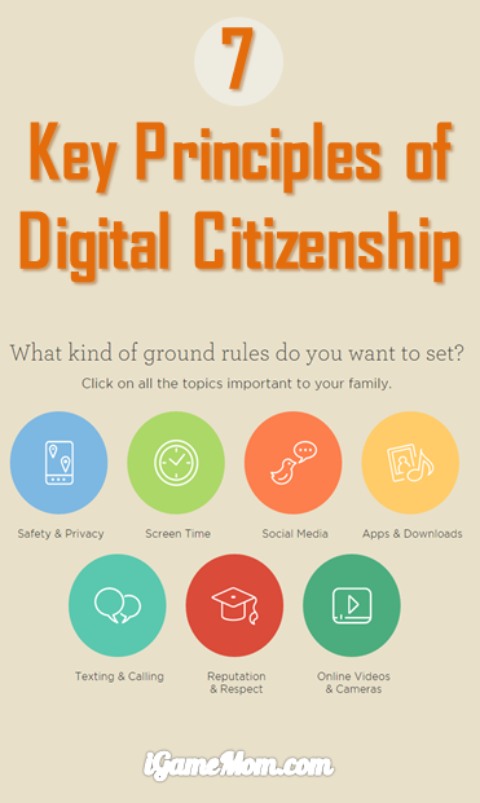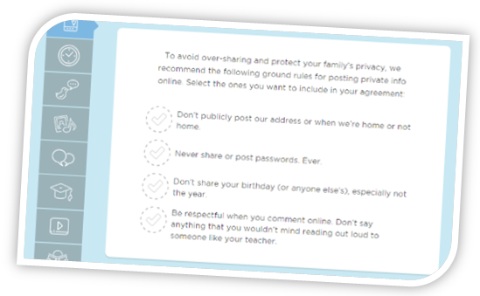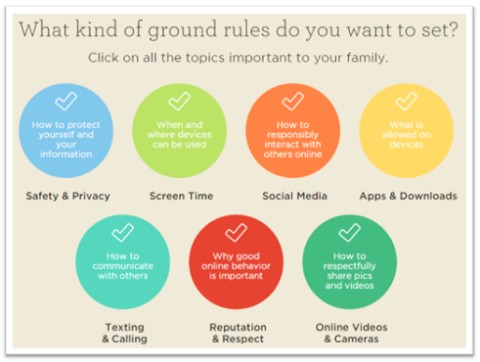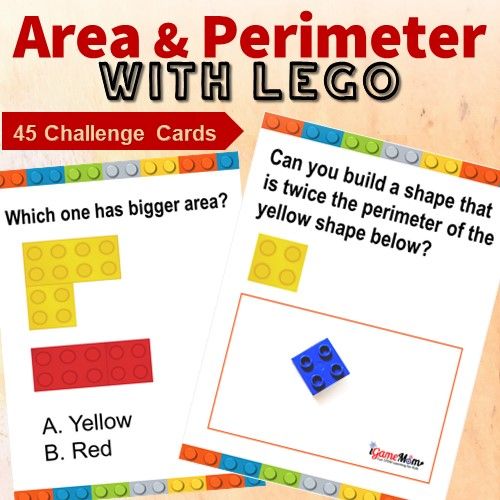Now more and more kids are on devices that have internet access. Survey data have shown that majority children are receiving their first smart phones between the ages of 8 and 12. Even for kids who don’t have a smart phone, they have access to parents’ devices or family computers that have internet access, with social media apps that they can use. We have seen many articles about kids spending too much time on devices and posting irresponsible posts on social media. All these tell us that it is important to teach our kids to be a good digital citizen. But with all these technologies being so new, it is hard to keep up and hard to think through everything that we need help kids learn. Isn’t it great if there is a place that shows you all the things kids need know about digital citizenship and in a format that is easy for both parents and children to comprehend and remember? This is what The Smart Talk is about.

I have covered a lot about digital citizenship, and thought I already know enough about kids digital citizenship to teach my child. But when I went through the Smart Talk with my child, I was really impressed with how thorough the system is and how easy it is to go through the whole thing with a teenage child. After talking through all the important points, a personalized, official family agreement can be stored on the computer or printed and posted at home. It is helpful to have a document that parents can go back and review with kids periodically.
Digital Citizenship includes 7 areas, each area has its unique points to pay attention to based on kids’ age.
1. Safety and Privacy: this is the area about sharing passwords, setting up parent controls on the devices. One important point is the differentiation of screen name and real name. Never use your full name as your screen name for games.

2. Screen Time: what kids can use the device for? Are they allowed to use the device for games? What are the time that they are allowed to use the device? What are the time they are not allowed to use the device, such as dinner time, bed time. How are these time limits enforced? Do you need set up a program on the device to enforce the time limit? If yes, both parent and kids need agree on these.
3. Social Media: Who can the child connect on social media, family members, friends parents know, strangers? What can be posted and what can not be posted? Especially, what kind of pictures are off limits? What is appropriate behavior if someone else shared an embarrassing photo?
4. Apps and Downloads: Are children allowed to download apps, games, movies, songs, or books? What is age limit of the games and movies that are allowed on the device? Will children pay for all the downloads? or Will children get a budget limit? How is the limit enforced?
5. Texting and Calling: Do you want to set limits on texting? What kinds of limits? Do you want to set limits on who, when, and total number of texting and calls?
6. Reputation and Respect: this is the place to talk about online bully and what is appropriate online behavior to be a respectful digital citizen. One thing I find very helpful to talk that is covered here is the responsibility to the device. Who is going to pay for the repair and replacement if the device is damaged or lost?
7. Online Videos and Cameras: there are some ground rules suggested here that are very helpful and important for kids to know, such as always ask for permission before taking and posting pictures of other people, never publicly embarrass other people.
As you can see these are very thorough coverage. Even if you already know all these principles, it is still nice to have everything in one place and talk through with kids all at one time. It is important to know that being a parent is a balancing act, especially when it comes to managing kids and their devices. I like LifeLock giving parents a way to make a hard and complex discussion easier. It is nice to have a written contract, but it is even more important to have the process to talk with kids about all the important things they need know. LifeLock makes it easy and clear to the points.

Visit the Smart Talk site to check out the online safety resources and create your own personalized family contract to encourage healthy digital habits.




